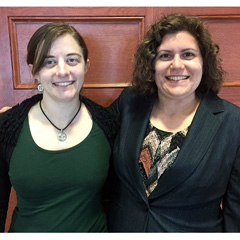April 19, 2018
Can I use this? Can I show that? Avoid plagiarism and copyright infringement with a new research guide
Submitted by Sarah McGreer Hoyt

Do you write? Complete academic work? Teach? Perform? Create? Edit websites? You are likely interacting with copyrighted and/or library content on a regular basis, often without realizing it.
Fortunately, academic librarians Rachel Miles and Christina Geuther recently published a research guide to help students with common copyright and licensing problems, such as
- Using content in academic work
- Performing musical and theatrical works publicly
- Having a film showing
- Using content in an online video
Sometimes, interaction with others’ content is legal and ethical, such as using a work in the public domain (i.e., it does not have copyright protection), but there are instances when reuse can be considered illegal or unethical, such as using a stock photo without paying the license fee.
In general, it’s best to reuse works that are openly available, such as works in the public domain and works that are openly licensed. Creative Commons Licensing (CCL) is the most common type of open licensing, and a creator who applies a CCL to their images, music, videos, scholarly articles and other works gives generous rights to the public to reuse, remix and build upon their creation.
To learn more about how to legally and ethically reuse others’ content, explore the research guide. If you have questions, please contact Rachel Miles, digital scholarship librarian.
While you’re there, check out the hundreds of other guides that K-State’s librarians have created! From accounting to theater, we have the helping hand you need to conduct research in 55 different disciplines. There are also general guides on everything from a K-State Libraries overview to resources for job seekers.
Legal disclaimer: this article and the corresponding copyright guide are not meant to offer legal advice; they are only for informational and educational purposes.
